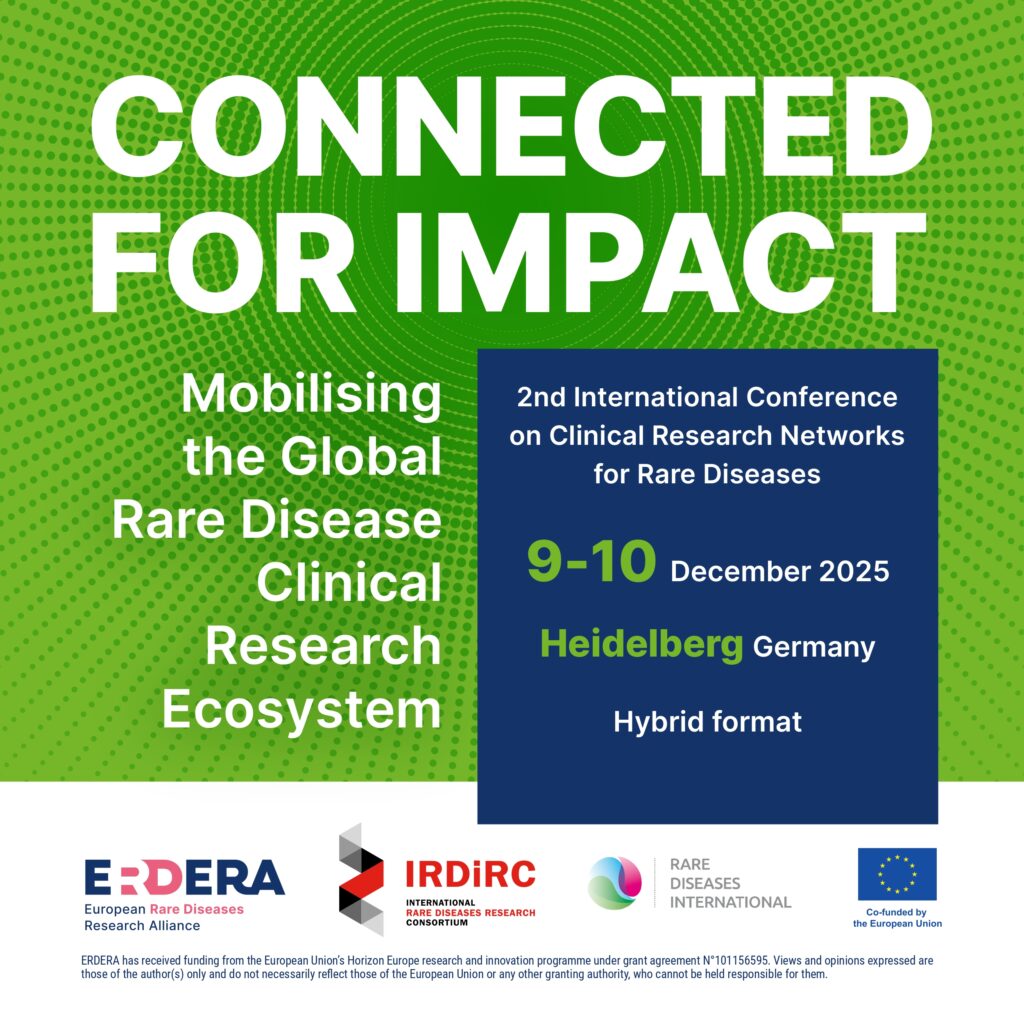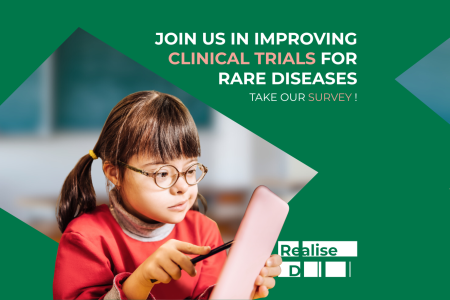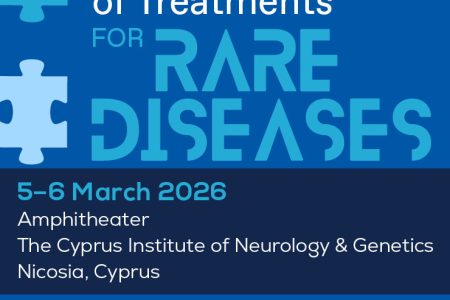With one month to go, registrations are open for the 2nd International Conference on Clinical Research Networks — a two‑day hybrid meeting designed to align global efforts on data, diagnostics and trials for rare diseases.
The conference is organised by the European Rare Diseases Research Alliance (ERDERA), the International Rare Diseases Research Consortium (IRDiRC) and Rare Diseases International (RDI). Places on site in Heidelberg are limited so registration is encouraged, and the livestream is accessible for all registered participants.
Setting the agenda for coordinated action
The event will kick off with an orientation plenary led by ERDERA Senior Scientific Project Manager Baptiste Eluard, RDI Chief Executive Alexandra Heumber Perry and IRDiRC Chair David Pearce. They will map how clinical research networks are organised across Europe, the United States, Japan, Australia and low‑ and middle‑income countries, and spotlight effective international collaborations.
Plenary Session 1 will then turn to real‑world evidence and data collection in a regulatory context, led by Franz Schaefer of Universitätsklinikum Heidelberg, the event’s host institution. It will set out regulatory expectations for rare‑disease real-world evidence (RWE) and highlight multinational collaborations already embedding compliant approaches within clinical research networks, with invitations to expand joint work.
From smarter diagnostics to practical innovation
In the afternoon, Yanis Mimouni of the Critical Path Institute (C-Path) will chair Plenary Session 2 which will delve into new approaches in diagnostics and clinical research. Topics include outputs from a recent Chan Zuckerberg Initiative workshop, data‑federation tools developed by C‑Path and within ERDERA, and practical methods for extracting and using EHR data in Europe and Singapore. “It connects data capture to diagnosis, disease understanding, and trial design, with a focus on inclusive approaches that work in resource-limited settings”, says Mimouni.
Day two will begin with two parallel workshops. “Learning from Low- and Middle-Income Countries (LMIC)”, led by Daria Julkowska and RDI’s Senior Global Programmes Manager Monica Drum, will address how to strengthen inclusion of LMICs in registries and clinical research — from context‑adapted registry models and bridging diagnostic gaps to ethical governance of cross‑border data, sustainable local infrastructure and ensuring LMIC realities inform global priorities. According to Julkowska, “the main goal of this workshop is to share ideas on innovative ways to implement the tools, initiatives and resources and to develop next steps and collaborations to improve participation in clinical research and registries”.
Partnerships that deliver for patients
Running in parallel, “Rules of engagement for multistakeholder clinical research networks” will be led by Heidrun Hildebrand of the European Federation of Pharmaceutical Industries and Associations and Samantha Parker, Vice‑Chair of IRDiRC and Patient Engagement Lead at Italfarmaco, who points out the discussion will focus on “the different models of engagement that underpin these collaborations, discuss the opportunities they offer to various stakeholders, and share strategies for engagement.”
Plenary 3 will report back from both workshops with Monica Drum, Daria Julkowska and Heidrun Hildebrand. In the afternoon, Plenary 4 on Global trials, local impact, led by Alexandra Heumber Perry, will review enabling policy frameworks — including national and global reforms such as Brazil’s Resolution 205/2017 and the World Health Assembly resolution — and highlight how patients and communities drive equity and innovation. Speakers will examine models for cross‑sector partnerships and ways to facilitate access to trials worldwide.
The conference will close with Plenary 5 on global networks and models of care through the Duchenne muscular dystrophy (DMD) experience, moderated by David Pearce, Chair of IRDiRC. The session will show how connected ecosystems of centres of expertise improve holistic care, strengthen access to trials and generate learnings that move between research networks and clinical services across income settings. “The development of treatments for rare diseases is not proceeding at the same rate of the incremental gains in diagnoses”, David says. “Using DMD — a well‑characterised rare disease — we intend to show how complex and varied presentations can be cared for in a clinically specific manner as a model for other rare diseases.”
Registration is open and encouraged for both in‑person and virtual participation.
The full programme and speaker list will be updated regularly: Full programme and speakers.
Practical details
- Dates and format: 9–10 December 2025; hybrid (Heidelberg and online)
- Organisers: ERDERA | IRDiRC | Rare Diseases International
- Who should attend: Patient representatives, policymakers, clinicians, researchers, regulators, funders and industry partners
- Registration: Last in‑person places; free livestream for registered participants
- Programme: See updates and speakers here: Full programme and speakers.





